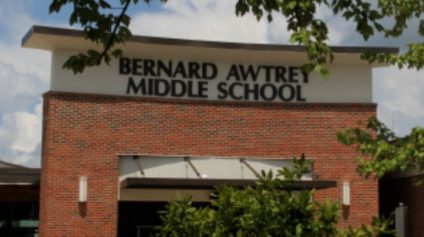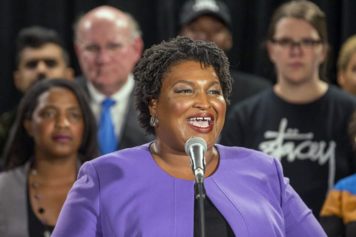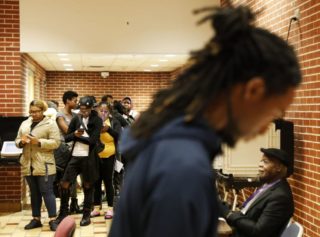
Jon Ossoff is the Democratic challenger for Georgia Congressional 6th District.
While the Trump administration implodes over false wiretapping claims and foibled meetings with world leaders, politicians in the 6th Congressional District in Georgia are preparing for a special runoff election that has the potential to swing the political pendulum in Democrats’ favor.
The special election comes as a result of former incumbent Tom Price’s resignation after he was appointed to Secretary of Health and Human Services and is now leading the fight to repeal Obamacare. Once represented by former House Speaker Newt Gingrich and current Georgia Senator Johnny Isakson, the 6th District is one of the most affluent in Georgia and has not elected a Democratic representative since 1979. Both Sen. John McCain and Mitt Romney carried the district by over 20 points during their presidential runs, yet last November, Hillary Clinton lost the district by under 2 points, signaling to Democrats that it is primed for an ideological flip. In fact, the 2016 election was Price’s smallest victory yet, dropping 5 points from his 2014 margin and it was against a Democratic candidate who spent virtually nothing on the campaign trail.
Georgia’s special election is what is called a “jungle primary,” which means that everybody gets into the race and, unless somebody wins over 50 percent majority, the two candidates with the most votes run against each other, regardless of party. The primary is on April 18 and the run-off, if necessary, is scheduled for June 20.
Democrats plan to refine their messaging and use the special election as a springboard for 2018 midterms to take back the majority in the House and Senate. After Trump’s narrow victory in the 6th, they are hoping that a vigorous campaign might lead to a Democrat taking office. They’ve thrown their weight behind documentary filmmaker and former congressional aide Jon Ossoff, who, at 30 years old, appears to have the spunk necessary to sway stubborn voters. The Democratic Congressional Campaign Committee (DCCC) has sent nine staffers to the district to support his bid and are conducting focus groups aimed at increasing voter turnout. Ossoff’s campaign has raised nearly $3 million in just a few months, and with endorsements from Sen. John Lewis and Congressman Hank Johnson, plus a slight lead in the latest polls, the newcomer should not be underestimated.
The 6th district is only 13 percent Black, but that number has doubled over the past decade as Georgia suburbs have grown and diversified. One of the DCCC’s focus groups taking place this week will target African-Americans in hopes of drawing more of them to the polls in April and beyond. In addition, data from the Pew Research Center has shown that only 36 percent of white, college-educated voters approve of Trump’s job performance so far. Democrats are counting on the district’s majority white and college-educated population to follow this trend and favor Ossoff, who has been running a centrist campaign, over Republicans who promise to cooperate with the Trump administration.
Georgia Republicans are appropriately rattled. The Congressional Leadership Fund, a superPAC affiliated with GOP leadership, launched a $1.1 million ad storm against Ossoff, one of which shows clips of Ossoff in a Star Wars costume from when he was a member of a Georgetown University singing group. Were it not for these desperately transparent attacks, it would appear on the surface that Republican candidates have a competitive edge. Former Georgia Secretary of State Karen Handel has name recognition from her gubernatorial run in 2010, which she narrowly lost in a runoff election. Handel just released her first campaign ad, which attacks Ossoff as a “lightweight liberal” and calls him “Nancy Pelosi’s Hand-Picked Candidate.” Another well-known candidate is former state Sen. Judson Hill, who resigned upon qualifying to run in the special election. He’s received endorsements from Newt Gingrich and Marco Rubio, though he’s currently trailing in the polls.
The 2016 election saw a lack of enthusiasm from liberals in Georgia and four GOP congressional incumbents cruised unopposed to re-election. Democrats are counting on this special election to galvanize their base so they can challenge Republicans across the state in 2018. Democrats hope that Donald Trump remains unpopular. (Current polls have his approval rating at a meager 37 percent.) Democrats believe this will help energize the base and get so-called moderate voters who supported Trump to swing back toward Democratic candidates.
It may be surprising to those who consider the South a permanently red region, but University of Georgia political science professor Charles Bullock told Prospect.org that Georgia is well on it’s way to becoming a purple, and, eventually, blue state. According to him, “The challenge for Democrats will be to hold interest beyond this special election till 2018.”
Despite all of the support, Ossoff still has an uphill battle ahead of him. Republicans are painting him as inexperienced and underqualified, and he’s running against candidates with higher name recognition. The race will hinge on whether Democrats can get enough voters to the polls, a feat they’re hoping early voting will address. Regardless of the outcome, the 6th district’s special election will pave the way for the 2018 midterm elections and determine how much work Democrats have ahead of them both in Georgia and around the country.


